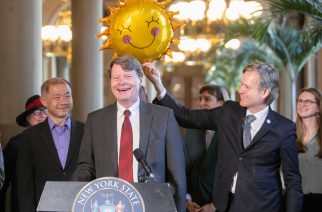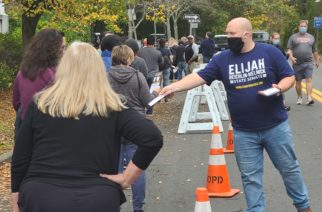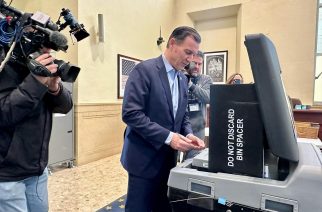
Election reformers are seeing mixed results in the new state budget passed this week. On one hand, New Yorkers will now be able to vote before Election Day, register to vote online, and polls will open earlier for upstate primaries.
Additionally, employers will be required to give all workers three hours of paid time off to vote, and with a new $14.7 million allocation, voters will be able to sign in at polling places using an electronic sign-in book.
The e-poll books keep track of data such as voter registration, voting history and verification and identification of voters. This will bring the state’s system up to date with 21st century technology.
More than half of the states in the U.S. use electronic polling books already.
On the other hand, many good-government groups and activists are angry that the budget did not establish a system of publicly financed campaigns that rely on a small-donor matching system, coupled with lowered contribution limits. Instead, a commission will study the feasibility of such a system for legislative and statewide offices, and will issue a report in December.
Proposed by the Fair Elections for New York campaign, a small-donor matching system would give a voice to New Yorkers who cannot afford to donate large sums of money to political candidates. It is also seen as a system that allows more people to run for political office.
Critics of the current system say elections are often financed primarily by large businesses, LLCs, and PACS, which put their interests above those of the public.
Public financing means that smaller donations will be matched by state funds, enabling candidates who don’t normally get funding from these large money sources, to get their campaign off the ground.
“Our elected legislators just received a $10,000 pay raise today upon the timely delivery of the new budget; they should begin to earn their increased pay by holding hearings on comprehensive campaign finance reform with the goal of delivering legislation during this session,” reads a statement by the League of Women Voters of New York, issued just hours after the budget passed. “Legislators can build upon the public financing bill that the State Assembly has repeatedly passed in recent years, lower the state’s sky-high contribution limits and finally put in place real enforcement of campaign finance laws.”
The budget did create a new commission to study the feasibility of a small-donor matching system for elections and look at specific aspects such as eligibility thresholds, public financing limits, and contribution limits for participating candidates. The commission’s findings will be due in a report by December 1, 2019 and will be binding unless modified by law within 20 days.
The Fair Elections Campaign, which had staged rallies in the Capitol for months leading up to the budget passage, is not happy with the delay, but said they would be watching the work of the commission closely.
“We expect timely appointments to this commission and will provide recommendations,” their statement reads. “Who is appointed to the commission is critical: New Yorkers deserve only the best, most expert and independent thinkers who are committed to creating a robust public financing system that will encourage candidate and small donor participation.”









